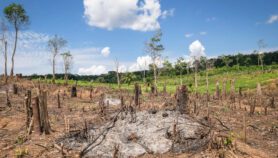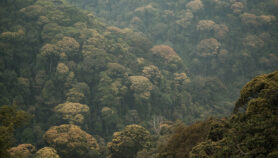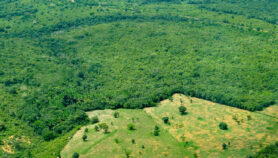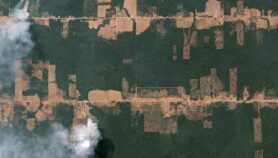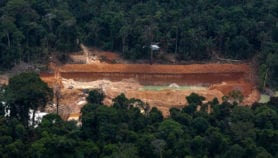By: Katie Mantell
Send to a friend
The details you provide on this page will not be used to send unsolicited email, and will not be sold to a 3rd party. See privacy policy.
Pressures on the environment, and the growing inequalities between rich and poor nations, are threatening global stability at least as much as terrorism, according to a report from the Worldwatch Institute, a US-based environmental think-tank.
The report, State of the World 2002, points out that deaths from AIDS soared more than six-fold last decade, global emissions of carbon dioxide climbed more than nine per cent, and 27 per cent of the world’s coral reefs are now severely damaged — up 10 per cent since the 1992 Rio Earth Summit.
But the report — which focuses on issues central to the United Nations World Summit on Sustainable Development, which opens in Johannesburg, South Africa in late August — also highlights some of the advances since the Rio meeting. These include declining deaths from pneumonia, diarrhoeas and tuberculosis, and the successful phasing out of ozone-depleting chlorofluorocarbons.
Despite these achievements, Worldwatch president Christopher Flavin says that the world is far from ending the economic and environmental marginalisation that afflicts billions of people: “Despite the prosperity of the 1990s, the divide between rich and poor is widening in many countries, undermining social and economic stability.”
The low priority given to environmental policies, a decrease in foreign aid and the increasing debt of developing nations are jeopardising global stability, the report says.
“Getting the world onto a more environmentally and socially durable course is a daunting task,” says State of the World 2002 project director Hilary French. “Johannesburg will help to determine whether the nations of the world can jointly address pressing problems, or whether we will remain on a destructive path that leads to poverty, environmental decline, terrorism, and war.”
© SciDev.Net 2002




